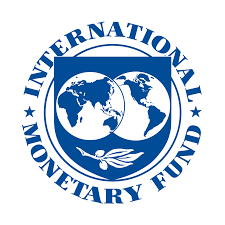By Atoyebi Nike
Nigeria’s 2025 fiscal outlook faces growing uncertainty as the International Monetary Fund (IMF) has issued a stark warning, urging the federal government to revise its budget projections or risk deepening economic instability.
In its latest Article IV Consultation Report released Wednesday, the IMF cautioned that Nigeria’s fiscal deficit could climb to 4.7% of GDP far above the government’s current target due to declining oil prices, underwhelming oil production, and weak execution of capital expenditure projects.
“Absent policy actions, the fiscal deficit in 2025 would exceed budget expectations,” the IMF report warned, noting the need for an urgent recalibration of Nigeria’s fiscal strategy.
The Fund also flagged potential risks from the government’s optimistic assumptions about oil revenues, which have already been shaken by falling global oil prices and domestic production challenges. It noted that the 2025 budget was built on “overly hopeful” projections that no longer align with current economic realities.
The 2025 Appropriation Act, signed by President Bola Tinubu, is Nigeria’s largest budget to date ₦54.99 trillion and includes allocations of ₦23.96 trillion for capital projects, ₦13.64 trillion in recurrent spending, and ₦14.32 trillion for debt servicing. The budget was premised on a $75/barrel oil benchmark, 2.06 million barrels/day output, ₦1,400/$ exchange rate, and 15% inflation.
However, the IMF highlighted gaps in execution capacity and advised prioritizing recurrent expenditure cuts overgrowth-enabling capital investments. It also questioned the realism of achieving significant tax reforms within the fiscal year, noting that fuel subsidy savings estimated at 2% of GDP may not be realized by mid-2025.
“If the savings are not realized… adjustment would have to come from the expenditure side,” the report read, suggesting rationalization of recurrent costs to preserve capital investments.
The IMF also expressed concern about Nigeria’s rising public debt, which grew from 49% of GDP in 2023 to 53% in 2024, driven largely by fiscal deficits and exchange rate volatility. It advised the government to explore alternative financing models, including public-private partnerships and pre-export financing, while warning against excessive external borrowing.
The Fund praised recent reforms such as tightened monetary policy and naira stabilization, which helped lower inflation to 23.7% in April 2025, from 31% in 2024. It also commended improvements in revenue mobilization, financial sector stability, and foreign exchange market reforms.
Despite these gains, the IMF insisted that without a revised fiscal framework, Nigeria remains vulnerable to economic shocks and poor investment planning.
“A budget based on reasonable revenue projections will better allow for the needed prioritization of initiatives,” the Fund advised, calling for improved fiscal forecasting and execution in the 2026 cycle.
Responding to the IMF’s concerns, Finance Minister Wale Edun said the government is committed to adjusting the 2025 budget in response to changing oil dynamics, increasing hydrocarbon production, and ensuring that fuel subsidy savings are channel led into the budget.
“The implementation of the 2025 Budget is being carried out with a focus on safeguarding reform gains and ensuring economic stability,” Edun said in a statement issued by the Ministry of Information.
He reassured that the government is closely monitoring global oil markets and is ready to act decisively to protect reform outcomes and stimulate inclusive growth.
Meanwhile, the World Bank echoed the IMF’s concerns, describing the 2025 budget as “overly ambitious.” In its Nigeria Development Update report, the Bank warned that if revenue projections fall short, the government may resort to borrowing from the Central Bank’s Ways and Means facility, which could exacerbate inflation and undermine macroeconomic stability.
“Even with the positive revenue tailwinds in 2024, it looks like it’s going to be hard to meet the ambitious targets in the 2025 budget,” said Alex Sienaert, the World Bank’s Lead Economist for Nigeria.
However, Budget and Planning Minister Abubakar Bagudu dismissed the concerns, arguing that Nigeria’s projections are modest and reflective of the country’s capacity and resource potential.
“Are the projections ambitious? No, they are not. They are modest and based on our premium crude grades,” Bagudu said.
As pressure mounts from global financial institutions, all eyes remain on the Tinubu administration to respond with concrete adjustments that will steer Nigeria away from a looming fiscal crisis and maintain the fragile recovery of Africa’s largest economy.


